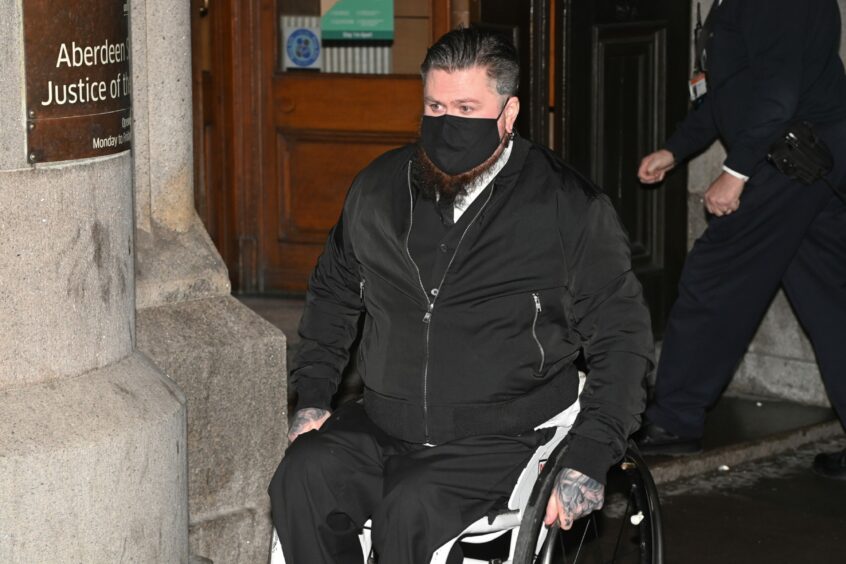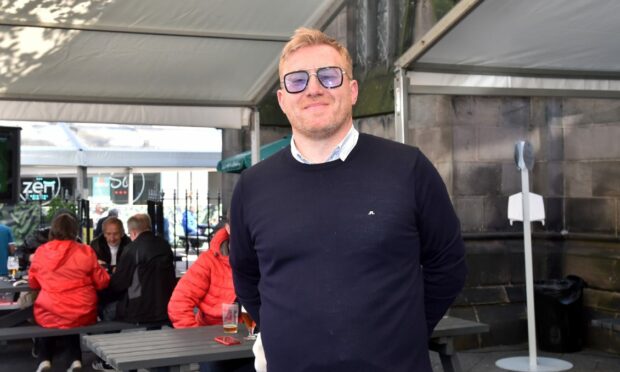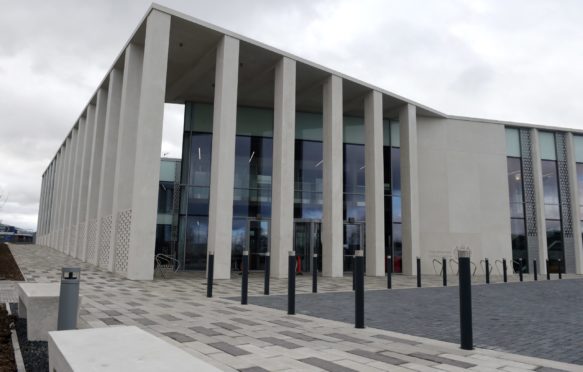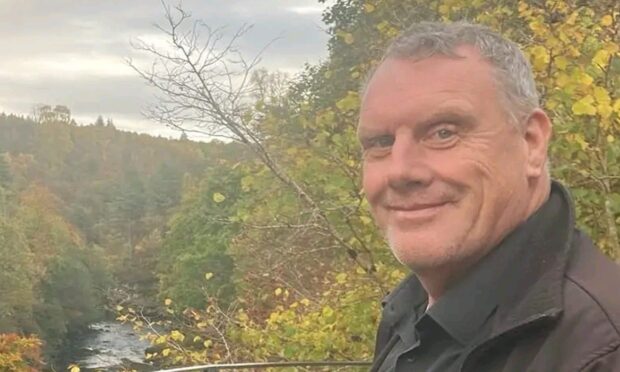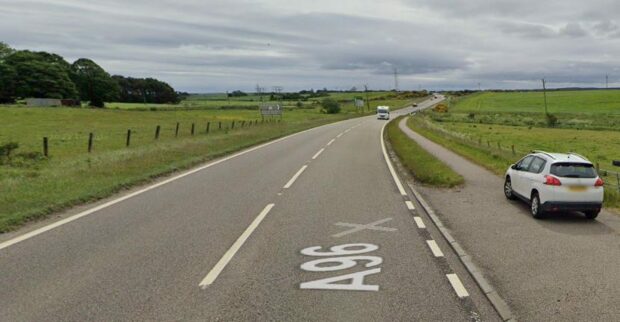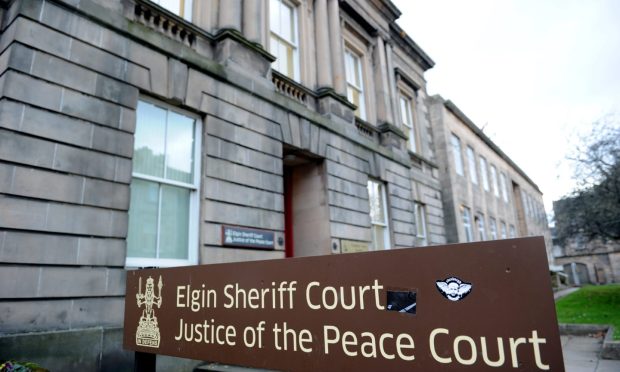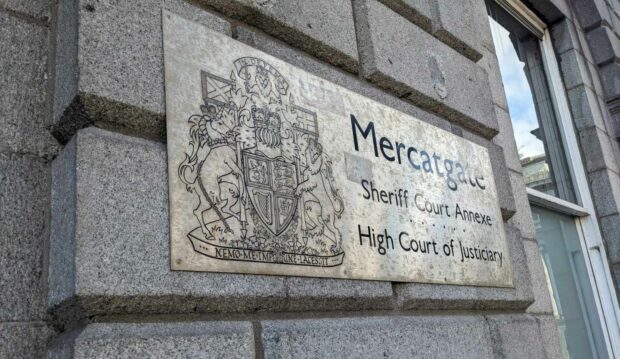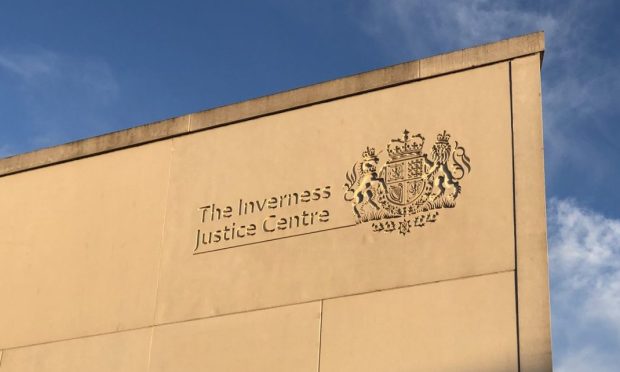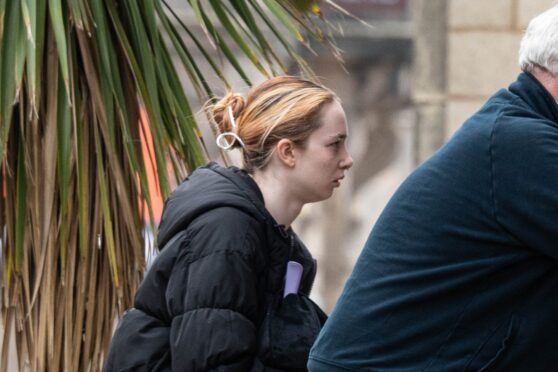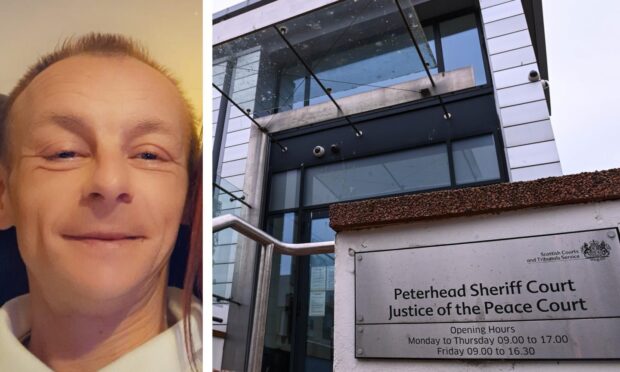Three novice drug producers who learned how to grow cannabis using online video tutorials say they only did it to help those in pain.
Charles Gardiner, Nathan MacDonald and Iain MacRory spent a year cultivating cannabis plants – worth around £50,000 – from a garage in Aberdeen’s Don Terrace, Aberdeen Sheriff Court was told.
The three men claim their motivation was not to become drug dealers but to help one of MacDonald’s relatives, who was living with chronic pain and found relief using cannabis oil.
Since they didn’t want to associate with criminals they decided to grow their own and started following horticultural lessons found on the internet.
A total of 52 plants found
Fiscal depute Alison Reid said police searched the garage in July 2020 after a neigbour reported MacRory and MacDonald regularly visiting.
“They were met by Gardiner who openly admitted the presence of cannabis cultivation in the garage, which he then showed them,” she said.
“Within the garage, three large tents were found with a fourth smaller tent in a room at the rear.”
A total of 52 plants were found alongside a quantity of herbal cannabis and stickers featuring a cannabis logo.
Gardiner, 36, told police of MacDonald and MacRory’s involvement and searches of their homes found packets of cannabis oil, stickers and £850.
“MacDonald provided a full and frank admission, stating he rented the garage from Gardiner and began the cultivation as a way to produce cannabis oil for his unwell sister to reduce her seizures,” the fiscal told Aberdeen Sheriff Court.
“He admitted to selling the remaining cannabis to fund the cultivation.”
Drugs had value of £50,000
The plants had a potential street value of £200 to £810 each, and a potential combined value of £10,400 to £42,100.
Further jars of herbal substance were valued at having a maximum value of just over £9,000.
The trio’s defence agents, however, argued it wasn’t the criminal enterprise that the Crown suggested and told the court the men were “novices” who relied on videos as they struggled to get the plants to grow in the freezing cold garage.
MacDonald’s defence agent, Liam McAllister, said his client cooked up the cannabis-farm plan out of “sheer desperation” to help his younger sister.
“It’s an exceptional case and one I have agonised over,” he told the court.
“The reason this man, in his mid to late 30s, who has never carried out a criminal act previously, involved himself in this is his sister.
“She is 23 or 24 and is bed-bound and in pain. She has just been referred to the Sapphire Clinic in London where she will almost certainly be prescribed medical marijuana.
“That was and remains Mr MacDonald’s motivation and reasoning for getting involved in this operation.
“She invariably benefited from the cannabis oil they produced.”
‘It was borne out of desperation’
Mr McAllister said MacDonald, 38, was a well-respected mobile barber and former support worker and martial arts tutor who had always worked in jobs where he “helped others”.
“He recognises and doesn’t shy away from what he was involved in,” he added. “It was borne out of desperation.”
Mr McAllister asked Sheriff Morag McLaughlin to punish the men but also “recognise their motivation”.
“Custodial sentences would be devastating,” he added. “Mr MacDonald has nothing to show for this financially.
“What he can show from it is that his sister will hopefully get better from her horrendous situation by being prescribed what he was providing.”
Second man wanted to help woman’s plight
MacRory’s defence agent Ian Woodward-Nutt said the father-of-two was a “habitual user of cannabis” and was a friend of MacDonald.
He said the former electrician, 53, who now works in management at an engineering firm, also had no previous run-ins with the law.
He said he was aware of Miss MacDonald’s “plight” and so began to produce the cannabis to make the oil. Leftover plants were then kept for his own personal use.
“Whilst the folly of that approach is quite clear given my client’s perspective from the dock right now, at the time it a very hard to source regular cannabis oil through the street, so-to-speak,” he said.
“Not without regular contact with drug dealers, that is, which they were keen to avoid.”
“The majority of the crop was converted into oil to help [MacDonald’s sister],” Mr Woodward-Nutt added. “My client used the rest for personal use.
“They were self-taught using online tutorials on how to grow cannabis. It was a period of trial and error.”
Third was paid for use of garage
Gardiner’s defence agent Chris Maitland said his client was paid for the use of the garage and was a user of cannabis himself to control his pain after a car accident left him paralysed in 2006.
“It left him unable to walk and dealing with the pain suffered,” he said. “He was prescribed certain medications for a considerable time and he simply could not cope with that medication, I am told.
“It was not as effective as cannabis for the pain he was suffering.”
Mr Maitland added that Gardiner hadn’t consumed cannabis since the garage discovery but has instead lived in pain, “adamant” he won’t return to prescribed medication.
“The agreement was he would rent the garage out knowing full well what it would be used for,” he added, pointing out the garage was inaccessible for Gardiner’s wheelchair.
“He was involved in cutting up the plants for the jars. They would be carried into the house for him.”
‘Novice growers muddling around’
Mr Woodward-Nutt later added that the single stone blockwork garage was “not ideal” for growing the drug as it was cold, poorly insulated and with “wild temperature swings”.
“These novice cannabis growers muddling around were not producing crops to anything like those quantities referred to by the so-called police experts,” he said.
“They set up what appeared to the outside to be a professional enterprise of 52 plants, but were not producing anything like that.
“The principal aim was not to produce vegetable matter – it was to produce oil,” he added.
“This is an exception case calling for exceptional disposal,” he added.
Spared jail but it was ‘close call’
Sheriff McLaughlin said custody was “originally at the forefront” of her mind but was swayed by the trio’s defence agents.
She told them: “It’s a very unusual case and very unusual circumstances surrounding why you entered into this enterprise.
“It was to alleviate the suffering of Mr MacDonald’s sister.”
The sheriff complimented the “thoughtful and detailed submissions” from the men’s defence agents but added: “One thing you have to understand is that you cannot take the law into our own hands.
“This is a very serious offence – an illegal enterprise that involved a significant sum of money over a significant period of time.
“This was a very, very close run thing.”
Gardiner, of Don Terrace, MacDonald, of Tillydrone Road, and MacRory of Newtonhill Road, Newtonhill, each admitted being concerned in the supply of a controlled drug between January 1, 2019 and July 30, 2020.
They were each handed a 12-month curfew, 225 hours of unpaid work and a supervision order lasting two years.
For all the latest court cases in Aberdeen, as well as the latest crime and breaking incidents, join our new Facebook group HERE.



